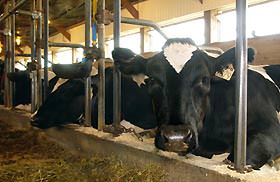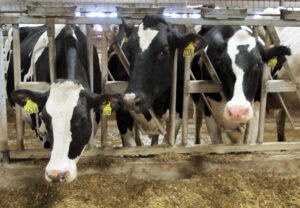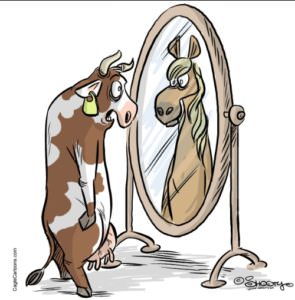Franken-Heifers Immune to Mad Cow
Using a combination of genetic engineering and cloning, scientists from the U.S. and Japan have successfully eliminated the protein that causes mad cow disease. So far the cows in the lab have proven immune to the illness, which shreds its victims' brains, driving them mad.
Using a combination of genetic engineering and cloning, scientists from the U.S. and Japan have successfully eliminated the protein that causes mad cow disease. So far the cows in the lab have proven immune to the illness, which shreds its victims’ brains, driving them mad.
Your support matters…AP via Forbes:
An international team of researchers from the U.S. and Japan reported Sunday that they had “knocked out” the gene responsible for making the proteins, called prions. The disease didn’t take hold when brain tissue from two of the genetically engineered cows was exposed to bad prions in the laboratory, they said.
Experts said the work may offer another layer of security to people concerned about eating infected beef, although though any food derived from genetically engineered animals must first be approved by the Food and Drug Administration.
“This research is a huge step forward for the use of animal biotechnology that benefits consumers,” said Barbara Glenn of the Biotechnology Industry Organization, a Washington industry group that includes the company that sponsored the research as a member. “This a plus for consumers worldwide.”
The surviving cows are now being injected directly with mad cow disease, known as bovine spongiform encephalopathy, or BSE, to make certain the cattle are immune to it.
Independent journalism is under threat and overshadowed by heavily funded mainstream media.
You can help level the playing field. Become a member.
Your tax-deductible contribution keeps us digging beneath the headlines to give you thought-provoking, investigative reporting and analysis that unearths what's really happening- without compromise.
Give today to support our courageous, independent journalists.




You need to be a supporter to comment.
There are currently no responses to this article.
Be the first to respond.